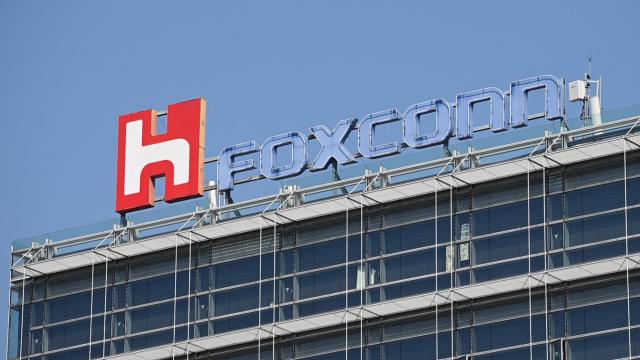Officials at Apple’s largest assembly plant for iPhones in China are scrambling to contain a small, but noticeable covid-19 outbreak spreading amongst its workers.
A spokesperson from Foxconn, one of Apple’s largest iPhone manufacturers, confirmed it was experiencing a “small number” of positive cases in its Zhengzhou facility Tuesday in statements sent to CNBC and Bloomberg. The spokesperson described current operations at the facility as, “relatively stable,” and “controllable,” and said they did not expect the disruptions to impact production outlooks for the quarter.
“For the small number of employees affected by the pandemic, Foxconn, in compliance with local epidemic prevention policies, is providing the necessary guarantees for livelihoods, including material supplies, psychological comfort and responsive feedback,” the spokesperson told CNBC.
The new cases come amid a covid-19 uptick in the city more broadly, which reported 23 new cases on Tuesday, according to Bloomberg.
Foxconn and Apple did not immediately respond to Gizmodo’s requests for comment.
While the handful of positive cases reported at the Zhengzhou Foxconn facility likely wouldn’t even rise to the importance of a company wide email in many U.S. firms, Chinese officials have so far taken a much stricter approach towards case containment in pursuit of a true “zero-covid” strategy.
Last week, nearly a month after U.S. President Joe Biden prematurely declared, “the pandemic is over,” Zhengzhou officials locked down nearly 1 million residents living in the city’s most populous district after reporting less than a dozen new cases in a single day. Those residents, Bloomberg notes, were ordered to stay at home and non-essential businesses were told to temporarily shut down.
Even brief factory shutdowns can have major consequences for tech firms like Apple who are heavily reliant on Chinese manufacturing and international supply chains. Last year, Apple was reportedly forced to cut back iPhone 13 production due to chip shortages that were exacerbated by pandemic disruptions. And though Apple’s begun to manufacture more of its iPhones in other countries like India, China still accounts for the lionshare of its most valuable product which makes the company particularly susceptible to any major lockdowns or production halts imposed by the Chinese government.
